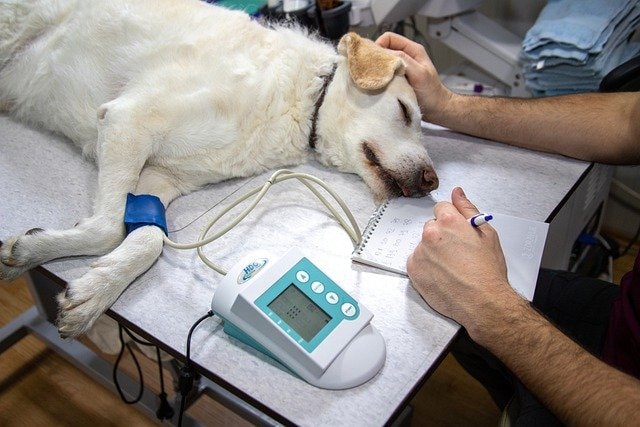
Dogs, often referred to as humanity’s best friends, bring joy, companionship, and unconditional love to our lives. However, like humans, dogs can suffer from a variety of health problems throughout their lives. Recognizing the signs of common diseases and taking preventative measures is key to ensuring their well-being. Below is a detailed guide to some of the most prevalent health issues in dogs, their causes, symptoms, and how to manage them.
1. Canine Parvovirus (Parvo)
Overview:
Parvo is a highly contagious viral disease that primarily affects puppies and unvaccinated dogs. It attacks the gastrointestinal system and, in some cases, the heart.
Symptoms:
- Severe vomiting and diarrhea (often bloody)
- Lethargy
- Loss of appetite
- Fever
Prevention and Treatment:
Vaccination is the most effective prevention. If a dog contracts parvo, immediate veterinary care, including fluid therapy and medications, is essential as the disease can be fatal if untreated.
2. Canine Distemper
Overview:
Distemper is a viral disease that affects a dog’s respiratory, gastrointestinal, and nervous systems. It is often fatal in severe cases.
Symptoms:
- Eye and nasal discharge
- Coughing and difficulty breathing
- Vomiting and diarrhea
- Muscle twitches or seizures in advanced stages
Prevention and Treatment:
Vaccination is critical for prevention. Supportive care, including fluids and medications to control symptoms, can help manage the disease, but recovery is uncertain in severe cases.
3. Hip Dysplasia
Overview:
Hip dysplasia is a genetic condition that affects the hip joint, leading to arthritis and mobility issues. It is common in large and giant dog breeds, though smaller breeds can also be affected.
Symptoms:
- Difficulty standing, running, or jumping
- Limping or stiffness
- Decreased activity
Prevention and Treatment:
While it cannot be entirely prevented, maintaining a healthy weight and providing proper nutrition during growth can reduce the risk. Treatments range from physical therapy and anti-inflammatory medications to surgical intervention in severe cases.
4. Ear Infections
Overview:
Ear infections are common in dogs with floppy ears or those prone to allergies. They are often caused by bacteria, yeast, or mites.
Symptoms:
- Scratching or rubbing the ears
- Redness and swelling inside the ear
- Discharge and foul odor
- Head shaking
Prevention and Treatment:
Regular ear cleaning and keeping the ears dry can help prevent infections. If an infection occurs, a veterinarian will prescribe medicated drops or ointments.
5. Obesity
Overview:
Obesity is one of the most common and preventable health issues in dogs. It increases the risk of other diseases, such as diabetes, heart disease, and arthritis.
Symptoms:
- Excessive weight gain
- Difficulty moving or exercising
- Fat deposits visible on the body
Prevention and Treatment:
A balanced diet and regular exercise are key. Consult a veterinarian to develop a weight management plan if your dog is overweight.
6. Heartworm Disease
Overview:
Heartworm disease is caused by parasitic worms that live in the heart, lungs, and blood vessels of infected dogs. It is transmitted through mosquito bites.
Symptoms:
- Persistent cough
- Fatigue after mild activity
- Weight loss
- Advanced cases may show swollen abdomen due to fluid buildup
Prevention and Treatment:
Preventative medications, given monthly, are highly effective. Treatment for heartworm infection is more complex, involving injections and strict rest.
7. Skin Allergies (Atopic Dermatitis)
Overview:
Skin allergies are common in dogs and can be triggered by environmental allergens (pollen, dust), food, or flea bites.
Symptoms:
- Constant itching and scratching
- Red, inflamed, or flaky skin
- Hair loss in affected areas
- Recurrent ear infections
Prevention and Treatment:
Identify and avoid allergens when possible. Treatments may include antihistamines, medicated shampoos, or prescription diets. In severe cases, a veterinarian may recommend immunotherapy.
8. Dental Disease
Overview:
Periodontal disease is one of the most overlooked health problems in dogs. It begins with plaque buildup and can lead to gum infection, tooth loss, and systemic infections.
Symptoms:
- Bad breath
- Red or bleeding gums
- Difficulty eating or chewing
- Loose teeth
Prevention and Treatment:
Daily brushing and regular dental cleanings by a veterinarian are crucial. Advanced cases may require tooth extractions or antibiotics.
9. Kennel Cough (Canine Infectious Respiratory Disease Complex)
Overview:
Kennel cough is a highly contagious respiratory illness caused by a combination of viruses and bacteria. It spreads easily in areas where dogs congregate, such as boarding facilities or dog parks.
Symptoms:
- Persistent, hacking cough
- Gagging or retching
- Mild fever
- Nasal discharge in severe cases
Prevention and Treatment:
Vaccines can reduce the risk. Mild cases often resolve on their own, but severe infections may require antibiotics and cough suppressants.
10. Cancer
Overview:
Cancer is a leading cause of death in older dogs, and it can affect various organs. The most common types include lymphoma, mast cell tumors, and bone cancer.
Symptoms:
- Lumps or bumps on the body
- Unexplained weight loss
- Lethargy
- Difficulty breathing or limping, depending on the type
Prevention and Treatment:
While there’s no guaranteed way to prevent cancer, early detection through regular veterinary check-ups is vital. Treatment options include surgery, chemotherapy, radiation, and palliative care.
Conclusion
Awareness of common health problems in dogs can help pet owners take proactive steps to prevent or manage these conditions. Regular veterinary visits, a balanced diet, exercise, and proper hygiene are essential for maintaining your dog’s health. Remember, a healthy dog is not only a happy companion but also a testament to your commitment as a responsible pet owner.
By staying informed and vigilant, you can ensure that your furry friend enjoys a long, healthy, and joyful life by your side.

